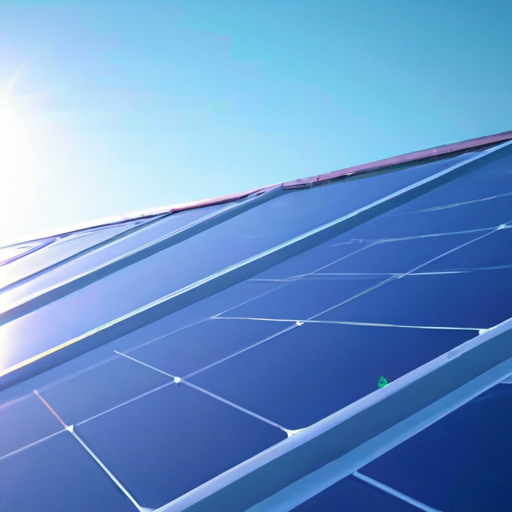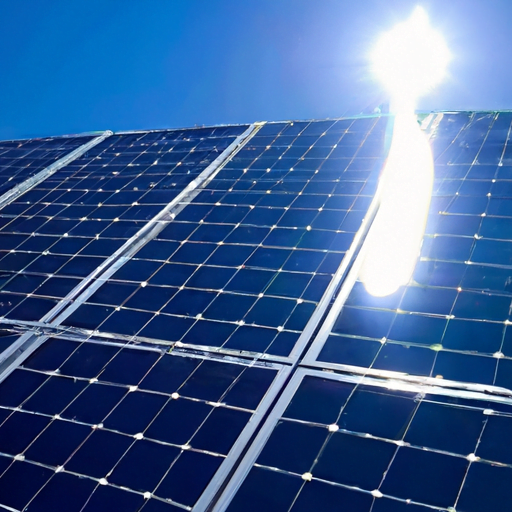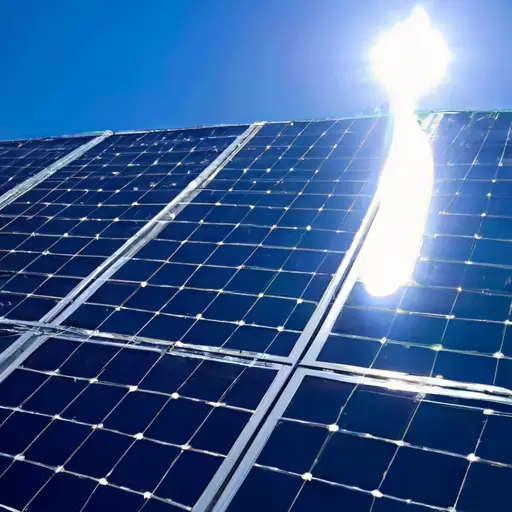So, you’re thinking about living off the grid and harnessing the power of the sun to generate electricity. It’s a great idea, but like with any new adventure, there are bound to be challenges and obstacles along the way. In this article, we’ll take a closer look at some of the common challenges that you may encounter when it comes to off-grid solar systems. By the end of this, you’ll have a better understanding of what to expect and how to overcome these challenges.
When it comes to off-grid solar systems, one of the biggest challenges is the issue of storage. Unlike grid-tied systems where excess electricity can be fed back into the grid, off-grid systems rely on batteries to store the energy for use during times when the sun isn’t shining. However, batteries can be expensive and may not have the capacity to store enough energy for prolonged periods of low sun exposure. This can lead to a shortage of power and a reliance on alternative energy sources.
Another challenge with off-grid solar systems is the maintenance and upkeep of the system itself. Solar panels need to be regularly cleaned to ensure optimal performance, and batteries need to be monitored and maintained to prevent any issues. Additionally, off-grid systems often require additional components such as charge controllers and inverters, which may need replacing or upgrading over time. It’s important to factor in these maintenance costs and responsibilities when considering an off-grid solar system.
Lastly, the initial cost of setting up an off-grid solar system can be quite high. While the long-term savings and environmental benefits may outweigh the upfront investment, it’s still important to consider the initial costs involved. From the solar panels to the batteries and all the additional components, it can add up quickly. However, there are government incentives and financing options available that can help offset the initial costs and make off-grid solar more affordable.
In conclusion, while off-grid solar systems offer many benefits, there are also common challenges that you may face. From the issue of storage to maintenance and upfront costs, it’s important to be aware of these challenges before diving in. However, with proper planning, research, and a little patience, these challenges can be overcome, and you can enjoy the freedom and sustainability that comes with living off the grid.

Introduction to Off-Grid Solar Systems
Living off-grid has gained significant attention in recent years as people seek a more sustainable and self-sufficient lifestyle. Off-grid solar systems are a popular choice for those who want to generate their own electricity without relying on the traditional power grid. These systems harness the power of the sun to provide clean and renewable energy.
Understanding the Concept of Living Off-Grid
Living off-grid means disconnecting from the utility power grid and generating your own electricity. Off-grid solar systems utilize photovoltaic panels to convert sunlight into electricity, which can then be used to power homes, businesses, or other structures. These systems often incorporate battery storage to store excess energy for use during times of low sunlight or high demand.
Advantages of Off-Grid Solar Systems
Off-grid solar systems offer numerous advantages over traditional grid-connected systems. Firstly, they provide energy independence. By generating your own electricity, you are no longer reliant on centralized power providers, giving you greater control over your energy consumption.
Secondly, off-grid solar systems reduce environmental impact. Unlike fossil fuels, solar energy is clean and renewable, producing zero greenhouse gas emissions. By harnessing the sun’s power, you are helping to combat climate change and reduce air pollution.
Thirdly, off-grid solar systems increase resilience in remote locations. In areas where it is challenging or expensive to extend the power grid, off-grid solar systems provide a cost-effective and practical solution. These systems can bring electricity to off-grid communities, improving their quality of life and opening up opportunities for development.
Lastly, off-grid solar systems promote sustainable development. By using renewable energy sources, we can meet our energy needs without depleting finite resources. This fosters a more sustainable and equitable future for all.
Overview of Off-Grid Solar System Components
Off-grid solar systems consist of several key components. The primary component is the solar panels, which capture sunlight and convert it into electricity through the photovoltaic effect. These panels are usually mounted on rooftops or ground-mounted in areas with higher solar exposure.
Battery storage is another crucial component of off-grid solar systems. This allows excess energy generated during the day to be stored for use during the night or periods of low sunlight. The battery bank must be properly sized to ensure sufficient storage capacity.
In addition to solar panels and batteries, off-grid solar systems require inverters to convert the direct current (DC) produced by the solar panels into alternating current (AC), which is used to power electrical devices. Charge controllers, wiring, and electrical panels are also essential components that ensure the system functions safely and efficiently.
Importance of Off-Grid Solar Systems
Now that we understand the concept of living off-grid and the components of an off-grid solar system, let’s delve into the importance of these systems and the benefits they provide.
Enhancing Energy Independence
One of the primary advantages of off-grid solar systems is the freedom and independence they offer. By generating your own electricity, you become less reliant on utility companies and their fluctuating prices. You have the power to control your energy consumption and production, reducing the burden of monthly utility bills.
Reduced Environmental Impact
Off-grid solar systems have a significantly lower environmental impact compared to traditional fossil fuel-based power generation methods. Solar energy is a clean and renewable resource, producing no greenhouse gas emissions during operation. By adopting off-grid solar systems, you are contributing to the fight against climate change and helping to preserve our planet for future generations.
Increasing Resilience in Remote Locations
In remote or isolated locations where it is challenging to extend the power grid, off-grid solar systems provide a viable solution. These systems can bring electricity to off-grid communities, providing them with opportunities for education, healthcare, and economic development. By increasing access to electricity, off-grid solar systems contribute to the resilience and well-being of these communities.
Promoting Sustainable Development
Off-grid solar systems promote sustainable development by providing access to clean and affordable energy. This energy can be used for various purposes, such as lighting, cooking, education, and communication. By utilizing renewable energy sources, off-grid solar systems support sustainable economic growth and improve the quality of life for individuals and communities.
Common Challenges in Off-Grid Solar Systems
While off-grid solar systems offer numerous benefits, they also come with their fair share of challenges. Understanding and addressing these challenges is crucial to ensure the practicality and effectiveness of these systems.
Inadequate Sunlight Availability
One of the primary challenges of off-grid solar systems is the variability of sunlight availability. Solar energy generation is dependent on the amount of sunshine received, and factors such as weather conditions and seasonal changes can impact the system’s performance. In areas with limited sunlight, it can be challenging to generate sufficient electricity to meet the energy demands.
Limited Energy Storage Capacity
Another challenge is the limited capacity of battery storage. Off-grid solar systems rely on batteries to store excess energy for use during times of low sunlight or high demand. However, the storage capacity of batteries is finite and must be carefully managed. If the demand exceeds the storage capacity, the system may experience power shortages or rely on alternative energy sources.
System Maintenance and Repairs
Off-grid solar systems require regular maintenance and occasional repairs to ensure optimal performance. Factors such as dust, debris, and damage to the panels or wiring can hinder the system’s efficiency. Regular inspections, cleanings, and prompt repairs are essential to maximize the lifespan and effectiveness of the system.
Unreliable Performance in Extreme Temperatures
Extreme temperatures, whether hot or cold, can affect the performance of off-grid solar systems. In extremely hot conditions, the efficiency of the panels can decrease, leading to reduced energy production. Similarly, extremely cold temperatures can impact battery performance and overall system efficiency. Thermal management solutions, insulation, and ventilation techniques can help mitigate these challenges.
Affordability and Upfront Costs
One of the most significant barriers to the widespread adoption of off-grid solar systems is the high upfront costs. Constructing an off-grid solar system requires significant investment in solar panels, batteries, inverters, and other components. The affordability of these systems is a crucial factor in determining their accessibility and feasibility.

Addressing Inadequate Sunlight Availability
To address the challenge of inadequate sunlight availability, several strategies can be employed to optimize the performance of off-grid solar systems.
Effectiveness of Solar Tracking Mechanisms
Solar tracking mechanisms can help maximize energy generation by orienting the solar panels towards the sun. These mechanisms allow the panels to follow the sun’s movement throughout the day, ensuring they are always positioned for maximum sunlight exposure. By optimizing the angle of incidence, solar tracking mechanisms can significantly increase the system’s energy output.
Using High-Efficiency Solar Panels
High-efficiency solar panels can convert a greater percentage of sunlight into electricity compared to standard panels. These panels utilize advanced technologies such as monocrystalline or polycrystalline cells to improve energy conversion efficiency. By using high-efficiency solar panels, you can generate more electricity from the same amount of sunlight.
Supplementing Solar Power with Other Renewable Sources
In areas with inadequate sunlight, it may be necessary to supplement solar power with other renewable energy sources such as wind or hydro. Hybrid renewable energy systems combine multiple sources to increase energy generation reliability. By diversifying the energy sources, off-grid solar systems can better adapt to varying environmental conditions.
Overcoming Limited Energy Storage Capacity
To address the challenge of limited energy storage capacity, several strategies can be implemented to optimize battery usage.
Optimizing Battery Bank Size
Properly sizing the battery bank is crucial to ensure sufficient energy storage capacity. The capacity of the battery bank should be determined based on the energy demands and the expected duration of low sunlight. By accurately assessing your energy needs and designing the battery bank accordingly, you can avoid power shortages and optimize system performance.
Exploring Advanced Battery Technologies
Advancements in battery technologies have significantly improved energy storage capabilities. Lithium-ion batteries, for example, offer higher energy densities and longer lifespan compared to traditional lead-acid batteries. Exploring and adopting advanced battery technologies can enhance the energy storage capacity and overall efficiency of off-grid solar systems.
Implementing Energy Management Systems
Energy management systems play a vital role in optimizing energy usage and reducing reliance on battery storage. These systems monitor energy consumption, prioritize energy needs, and intelligently distribute power among various appliances and devices. By implementing energy management systems, you can better manage energy usage and maximize the efficiency of the off-grid solar system.
Maintenance and Repairs
To ensure the reliability and longevity of off-grid solar systems, regular maintenance and prompt repairs are essential.
Regular Inspections and Cleanings
Regular inspections of the solar panels, wiring, and other components are necessary to identify any issues or damages. Inspections should include checking for loose connections, signs of wear and tear, and debris accumulation. Regular cleanings of the panels can improve their efficiency by removing dust and dirt that may obstruct sunlight.
Troubleshooting Common Issues
Understanding and troubleshooting common issues that may arise in off-grid solar systems is crucial. These issues can include battery failures, inverter malfunctions, or wiring problems. By diagnosing and resolving problems promptly, you can minimize downtime and ensure the system operates optimally.
Accessing Technical Support and Training
In cases where maintenance or repairs require technical expertise, accessing technical support is essential. Manufacturers or specialized technicians can provide guidance and assistance in troubleshooting and resolving complex issues. Additionally, attending training programs or workshops on off-grid solar system maintenance and repairs can empower you to handle routine maintenance tasks.
Ensuring Reliable Performance in Extreme Temperatures
Extreme temperatures can pose challenges to the reliable performance of off-grid solar systems. Implementing specific measures can help mitigate these challenges.
Thermal Management Solutions
Thermal management solutions, such as heat sinks or coolants, can regulate the temperature of solar panels and prevent overheating. These solutions dissipate excess heat and ensure that the panels operate within their optimal temperature range. By implementing thermal management solutions, you can maintain the efficiency of the panels even in hot weather conditions.
Using Insulation and Ventilation Techniques
In colder climates, proper insulation and ventilation techniques are necessary to protect the batteries and other components from freezing temperatures. Insulating the battery bank and employing ventilation systems can help maintain the required operating temperature range. This ensures that the batteries perform optimally and have a longer lifespan.
Cold Weather Protection Mechanisms
To prevent damage from frost or snow, cold weather protection mechanisms can be employed. These mechanisms can include snow brushes or heaters that remove or melt snow that accumulates on the solar panels. By ensuring the panels remain clear of snow or ice, you can sustain energy generation even in cold weather.
Addressing Affordability and Upfront Costs
The affordability and upfront costs of off-grid solar systems are significant barriers to implementation. Several strategies can help overcome these challenges.
Financial Incentives and Subsidies
Government programs and incentives can help reduce the upfront costs of off-grid solar systems. Tax credits, rebates, or grants can make these systems more affordable and attractive. Researching and taking advantage of available financial incentives can significantly lower the initial investment required.
Community-Based Financing Models
Community-based financing models, such as crowdfunding or cooperative financing, can help distribute the costs among multiple stakeholders. By pooling resources and sharing the financial burden, communities can collectively invest in off-grid solar systems. This approach promotes inclusivity and fosters community participation in sustainable development.
Productive Use of Energy
Exploring opportunities for productive use of energy generated by off-grid solar systems can help offset upfront costs. For example, starting a small-scale business that utilizes electricity, such as a workshop or a village store, can generate income and contribute to the sustainability of the system. By optimizing the use of energy, off-grid solar systems can become economically viable.
Conclusion
Off-grid solar systems offer numerous advantages in terms of energy independence, reduced environmental impact, increased resilience, and sustainable development. However, they also come with their fair share of challenges. Inadequate sunlight availability, limited energy storage capacity, system maintenance and repairs, unreliable performance in extreme temperatures, and affordability are among the common challenges faced.
Addressing these challenges requires a combination of innovative solutions, technological advancements, and supportive policies. By optimizing the performance of off-grid solar systems and overcoming these challenges, we can harness the full potential of clean and renewable energy, paving the way for a sustainable future.





